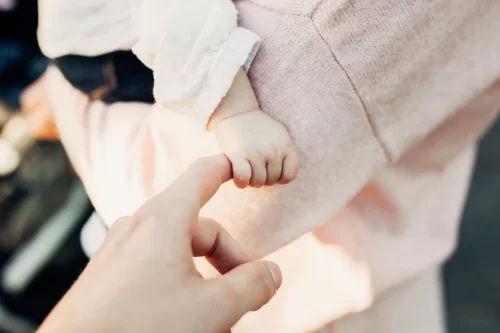Is Positive Growth Possible After Birth Trauma?
Up to 45% of new brothers report experiencing birth trauma, as found in a 2018 study published in The Journal of Perinatal Education (JPA). Birth trauma is a colloquial term for Post-traumatic Stress Disorder after childhood, with symptoms including re-experiencing the traumatic event, avoiding situations or places associated with the trauma, being constantly worried that something bad will happen to your baby, and feeling sad or guilty.
The triggers for birth trauma are varied, They can include having a baby that has experienced a traumatic injury during birth, having an induced birth, undergoing a forceps birth, having a very painful labor, and having a baby stay in a neonatal intensive care unit after birth. Experiencing birth trauma can be particularly difficult for mothers who are surrounded by people who do not understand the impact of traumatic birth on their psychological wellbeing. As tough as this type of trauma is, however, positive growth is possible.
Why is Positive Growth so Important for Women Who Have Experienced a Traumatic Birth?
Women who have had a traumatic birth may have a child who has a resulting disability and/or their baby may have to spend several days or weeks in intensive care, without being able to come home. Sometimes, traumatic injuries can be caused by medical malpractice. The latter can result, for instance, in issues such as cerebral palsy, Erb’s palsy, or spinal cord injuries. The weeks and months after birth are a time in which women may have to make important decisions such as what type of care to choose for their child, or whether or not to contact a birth defect lawyer (if medical malpractice was involved). These decisions can have a long-term impact on the mother’s wellbeing and that of her child, so seeking help and aiming to find a new (if different) purpose from life is important.
Can Anything Positive Arise Out of Traumatic Birth?
In the JPA study, researchers found out that mothers can experience a positive legacy called posttraumatic growth. This has been found in many people who have experienced traumatic events such as burns, cancer, and heart issues. After a traumatic event, people undergo posttraumatic stress, then (often) a disruption in their core beliefs, and finally, posttraumatic growth. The study made a series of findings, including the fact that younger mothers who experience birth trauma generally report more growth (perhaps because they are more open to change). Time is also key; the more time passes after the birth, the more time mothers have to find a sense of meaning from their difficult experience. One of the greatest markers of posttraumatic growth, scientists found, was a greater appreciation of life.
It is possible to experience growth even after a difficult experience like birth trauma. Women should embrace opportunities to do so, seeking psychotherapeutic help if they are showing signs of PTSD. The consequences of birth trauma can force families to make important decisions. Motivation, meaning, and a growth mindset can all help women overcome obstacles with a positive, proactive attitude that can enable them to achieve personal goals for themselves and their child.




